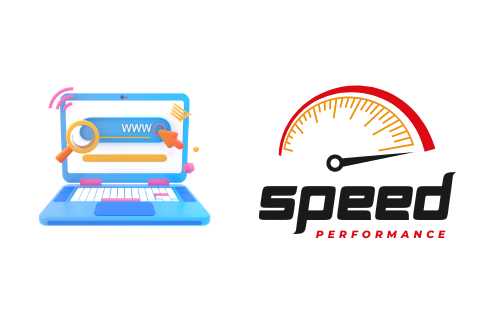
In today’s digital age, where information is just a click away, the speed at which your website loads can make or break your online presence. The importance of website speed cannot be overstated. It not only impacts user experience but also plays a pivotal role in search engine rankings. In this article, we will delve into why website speed matters and how you can optimize it for a seamless online presence.
Understanding Website Speed
Website speed, often referred to as page load time, is the amount of time it takes for a web page to fully display its content in a user’s browser. This includes the time it takes to retrieve all the necessary files, such as HTML, CSS, JavaScript, and images.
Why Does site Speed Matter?
The speed at which your website loads has a profound impact on several crucial aspects:
1. User Experience
One of the primary reasons site speed matters is user experience. When a visitor clicks on a link to your site, they expect to see its content promptly. If your site takes too long to load, visitors are likely to abandon it in frustration, resulting in higher bounce rates.
2. Search Engine Rankings
Search engines, particularly Google, consider website opening speed as a ranking factor. Faster-loading websites tend to rank higher in search results, leading to increased organic traffic. This makes web speed optimization crucial for Search engine Optimization.
3. Conversion Rates
A slow website can significantly impact your conversion rates. Whether you’re selling products or gathering leads, a fast-loading site encourages visitors to stay and take the desired action, ultimately boosting your conversion rates.
Factors Affecting Website Loading Speed
Several factors can influence your website’s Load speed:
1. Hosting
The choice of hosting provider and plan can greatly impact your website’s speed. Opt for a reliable hosting provider that offers fast servers and sufficient resources to handle your site’s traffic.
2. Image Optimization
Large and unoptimized images can slow down your website. Compress images and use the appropriate file format to reduce load times without compromising quality.
3. Minimize HTTP Requests
Each element on your web page, such as scripts, stylesheets, and images, requires an HTTP request. Minimizing these requests by combining files and using asynchronous loading can significantly improve speed.
4. Browser Caching
Leverage browser caching to store static resources on a visitor’s device. This reduces the need to download the same files upon each visit, improving load times for returning users.
How to Optimize Website Speed
Now that we’ve highlighted the importance of website loading time and the factors that influence it, let’s explore some strategies to optimize it:
1. Choose the Right Hosting
Select a hosting provider that aligns with your website’s needs. Consider options like VPS or dedicated hosting for improved speed and performance.
2. Content Delivery Network (CDN)
Implement a CDN to distribute your website’s content across multiple servers worldwide. This reduces the physical distance between the user and the server, resulting in faster load times.
3. Compress and Optimize Images
Before uploading images to your website, compress them to reduce file size while maintaining quality. Use responsive images to ensure they load appropriately on different devices.
4. Minimize Plugins and Scripts
Excessive plugins and scripts can slow down your website. Regularly audit and deactivate unnecessary ones to streamline your site’s performance.

Conclusion
In conclusion, site speed is a critical aspect of your online presence. It affects user experience, search engine rankings, and conversion rates. By understanding the factors that influence speed and implementing optimization strategies, you can ensure that your website loads quickly and efficiently, providing a seamless experience for your visitors.
FAQs
1. How does website speed affect SEO?
Website Opening duration is a crucial factor in SEO. Faster-loading websites tend to rank higher in search engine results, leading to increased organic traffic.
2. What is a Content Delivery Network (CDN), and how does it improve website loading Duration?
A CDN is a network of servers distributed globally. It stores cached copies of your website’s content and serves them to users from the nearest server, reducing load times.
3. Can I optimize site speed on my own, or do I need technical expertise?
While some optimizations may require technical knowledge, many can be implemented by website owners with basic technical skills. However, for more complex optimizations, it’s advisable to seek professional assistance.
4. Are there tools available to test my website’s speed?
Yes, several online tools, such as Google PageSpeed Insights and GTmetrix, can analyze your website’s speed and provide recommendations for improvement.
5. How often should I monitor my website’s loading speed?
Regular monitoring is essential. Perform speed tests periodically, especially after making changes to your website, to ensure it continues to load quickly and efficiently.

